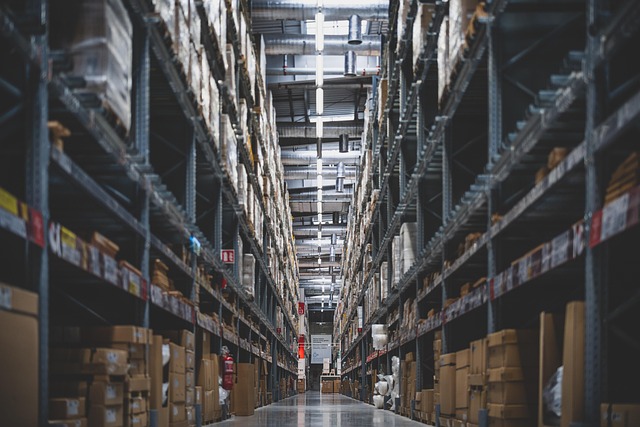If you’re starting a business in 2025, retail vs wholesale business model is one of the first and most important decisions. While both involve selling products, they operate very differently in terms of customers, pricing, inventory, and marketing.
In this guide, I will explain to you the retail vs wholesale business model, highlighting key differences, examples, advantages, disadvantages, and how to choose the right model for your goals.
What is a Retail Business?
A retail business sells products directly to end consumers, usually in small quantities. This model focuses on selling individual units either through a physical storefront or online platforms.
Examples of retail businesses:
Physical Retail (Brick-and-Mortar)
- A clothing boutique selling dresses to shoppers
- A supermarket selling groceries to families
- A bookstore selling novels directly to readers
- A pharmacy selling medicine and skincare products
Online Retail (E-Commerce)
- Amazon sellers who sell single products directly to customers
- A Shopify store selling home décor or gadgets
- An Etsy shop selling handmade jewelry or digital downloads
- A subscription box service (like Dollar Shave Club or HelloFresh)
Food & Beverage Retail
- A coffee shop selling lattes and pastries
- A bakery selling cakes and bread to walk-in customers
- A food truck serving meals directly to customers
Specialty/Niche Retail
- An Apple Store selling iPhones, MacBooks, and accessories
- Nike.com selling sneakers directly to consumers online
- A pet store selling dog food, toys, and supplies
Key Characteristics of Retail
- Sells products directly to end consumers (B2C model)
- Higher profit margins per unit compared to wholesale
- Typically involves smaller order volumes (1-10 units at a time)
- Requires strong marketing and branding to attract customers
- Relies heavily on customer service and experience
- Lower startup inventory requirements
- More flexibility in pricing, promotions, and product selection
- Operates through physical stores, e-commerce platforms, or both

What is a Wholesale Business?
A wholesale business sells products in bulk to other businesses. These buyers often resell the products to consumers at a higher price.
Examples of Wholesale Businesses
Consumer Goods
- A clothing manufacturer selling 5,000 T-shirts to a retail chain
- A cosmetics supplier providing beauty salons with skincare products
- A toy distributor supplying toy stores before the holiday season
Food & Beverage
- A beverage distributor selling soda in bulk to supermarkets
- A bakery supplier providing restaurants with flour and baking ingredients
- A wholesale coffee roaster supplying cafés with beans
Electronics & Technology
- A phone accessories supplier selling chargers and cases to retail shops
- A computer parts distributor selling processors and hardware to tech stores
- A wholesale electronics company selling TVs in bulk to large retailers
Home & Office Supplies
- A furniture wholesaler supplying hotels with beds and chairs
- An office supply distributor selling paper, ink, and printers to businesses
- A cleaning products supplier providing janitorial companies with bulk detergents
Specialty & Industrial
- A construction materials supplier selling cement and steel to contractors
- A medical equipment wholesaler providing hospitals with gloves, masks, and machines
- An auto parts distributor supplying repair shops with spare parts
Related post: How AI Can Help You Scale Your Small Business Fast and Avoid Costly Mistakes
Key Characteristics of Wholesale
Logistics, shipping, and inventory management are critical for success
Managing large volumes requires a well-structured supply chain. Delays or errors in shipping, poor storage practices, or stockouts can damage client trust and harm long-term contracts.
Operates on a Business-to-Business (B2B) model
Wholesale businesses don’t usually sell directly to the end consumer. Instead, they supply goods to retailers, distributors, or other businesses that resell or use the products. Building trust and strong professional relationships is central to success.
Focuses on bulk sales rather than individual unit sales
Unlike retail, wholesalers move products in large volumes—thousands of units at once. While each sale involves fewer buyers, the order sizes are much bigger, resulting in higher overall revenue.
Lower profit margins per unit, but higher total revenue due to volume
Wholesalers typically make less profit on each product sold compared to retailers. However, because they sell in bulk, the total revenue adds up significantly, making the model highly profitable at scale.
Requires larger startup capital and often warehouse or storage facilities
Wholesale businesses usually need more upfront investment than retail. This includes purchasing inventory in bulk, renting or owning storage facilities, and maintaining efficient supply chains.
Relies on long-term contracts and relationships with clients
Success in wholesale is built on consistency and trust. Many wholesalers secure contracts that span months or years, ensuring stable and predictable revenue streams.
Sales cycles are slower but larger
While retail relies on frequent small transactions, wholesale deals may take longer to negotiate and close. However, when finalized, these transactions are high-value and can sustain the business for extended periods.
Marketing is relationship-driven
Wholesalers don’t usually invest heavily in consumer advertising. Instead, they grow through trade shows, networking, referrals, and dedicated sales representatives who maintain strong business relationships.

Retail vs Wholesale Business: Key Differences
| Feature | Retail | Wholesale |
|---|---|---|
| Target Customer | End consumers (B2C) | Businesses (B2B) |
| Order Volume | Low (1–10 units) | High (bulk quantities) |
| Profit Margin | Higher per unit | Lower per unit |
| Marketing Strategy | Direct (social media, email, SEO) | Relationship-based (sales reps, trade shows) |
| Startup Costs | Lower | Higher |
| Inventory Requirements | Minimal to moderate | A large warehouse is often needed |
| Customer Relationship | Short-term and transactional | Long-term and contract-based |
Pros and Cons of the Retail Model
Pros
- Higher profit margins per product compared to wholesale
- Easier to launch with lower startup costs (especially online)
- Direct access to customer feedback and insights
- Greater flexibility and creative control over pricing, branding, and product selection
- Ability to build a recognizable brand and strong customer relationships
Cons
- Requires constant customer acquisition to maintain sales
- Sales volume is generally lower than wholesale
- Managing many small transactions can be time-consuming
- Heavy reliance on marketing and advertising to drive traffic
- Customer service demands can be high and resource-intensive
RELATED post: Hiring Employees for a Small Business: Avoid Costly Mistakes and Build a Winning, High-Performance Team
Pros and Cons of the Wholesale Model
Pros:
- Larger orders lead to stable revenue streams
- Fewer transactions required to reach sales goals
- Scalable through bulk sales and fewer clients
Cons:
- Requires significant startup capital
- Logistics and inventory management can be complex
- More difficult for beginners to enter
Retail vs Wholesale Business in 2025: Market Trends
| Business Model | 2025 Trends |
|---|---|
| Retail | Growth of direct-to-consumer brands, e-commerce automation, social commerce (TikTok Shop, Instagram), personalized experiences |
| Wholesale | Expansion of B2B marketplaces (Faire, Alibaba), private labeling, AI-driven demand forecasting, global sourcing efficiency |
Common Mistakes to Avoid
Retail Mistakes
- Setting prices too low to compete – Many retailers try to undercut competitors, but this often erodes profit margins and makes the business unsustainable. Instead, focus on value, branding, and customer experience.
- Ignoring customer service – Poor customer support or lack of responsiveness can quickly drive customers away in a market where alternatives are just a click away.
- Overstocking without validating demand – Buying too much inventory without testing the market can tie up capital and lead to losses if products don’t sell.
- Weak online presence – In today’s digital age, failing to build a strong e-commerce or social media presence can limit reach and growth.
- Inconsistent branding – Customers trust and return to businesses with a clear, consistent brand image. Constantly shifting branding confuses buyers.
Wholesale Mistakes
- Not securing solid contracts – Handshake deals or vague agreements can create disputes. Formal contracts protect both parties and ensure steady revenue.
- Over-reliance on one major client – Depending on a single buyer makes the business vulnerable. If that client pulls out, revenue can collapse overnight.
- Poor logistics planning leading to delays – Late deliveries damage trust and long-term relationships with retailers. Logistics must be reliable and scalable.
- Ignoring quality control – Supplying defective or inconsistent products damages the wholesaler’s reputation and can lead to lost contracts.
- Underestimating cash flow needs – Bulk sales often involve delayed payments (net-30 or net-60 terms). Without proper cash flow planning, a wholesaler may struggle to operate smoothly.
Should You Start a Retail or Wholesale Business in 2025?
Ask yourself the following questions to decide:
- Do you want to interact directly with customers or work behind the scenes?
- Can you manage large inventory and logistics, or do you prefer smaller, curated sales?
- Are you interested in brand building and customer experience, or supply chain and business accounts?
Choose retail if you:
- Prefer creative marketing and product curation
- Have a small budget and want to start lean
- Enjoy interacting with customers directly
Choose wholesale if you:
- Want to deal in high volumes with fewer transactions
- Have access to capital and space
- Prefer working with other businesses
RELATED post: The Most Successful Small Businesses in 2025: What’s Thriving Right Now?
Can You Do Both?
Yes. Many successful businesses combine retail and wholesale. For example, a company may sell directly to customers via its website while also supplying retail stores in bulk. This hybrid model can increase brand visibility and revenue streams.
Conclusion: Retail vs Wholesale business – Which Is Right for you?
The retail vs wholesale business choice comes down to your business goals, resources, and working style. Retail allows for greater control and customer interaction, while wholesale can offer scale and stability.
There is no one-size-fits-all answer. The most successful businesses in 2025 will be the ones that understand their model deeply and adapt quickly to market changes.
